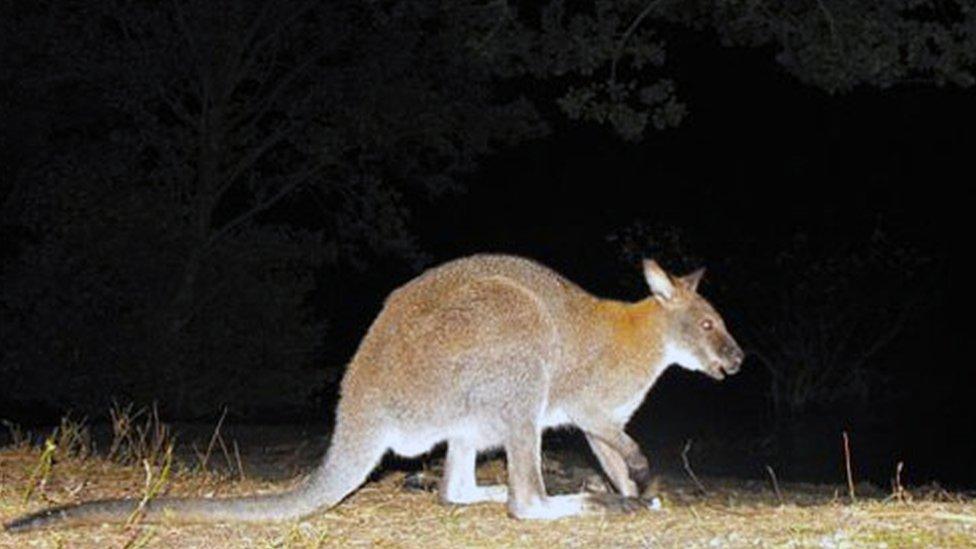Kirsty Young allowed to build on 'Wallaby Island'
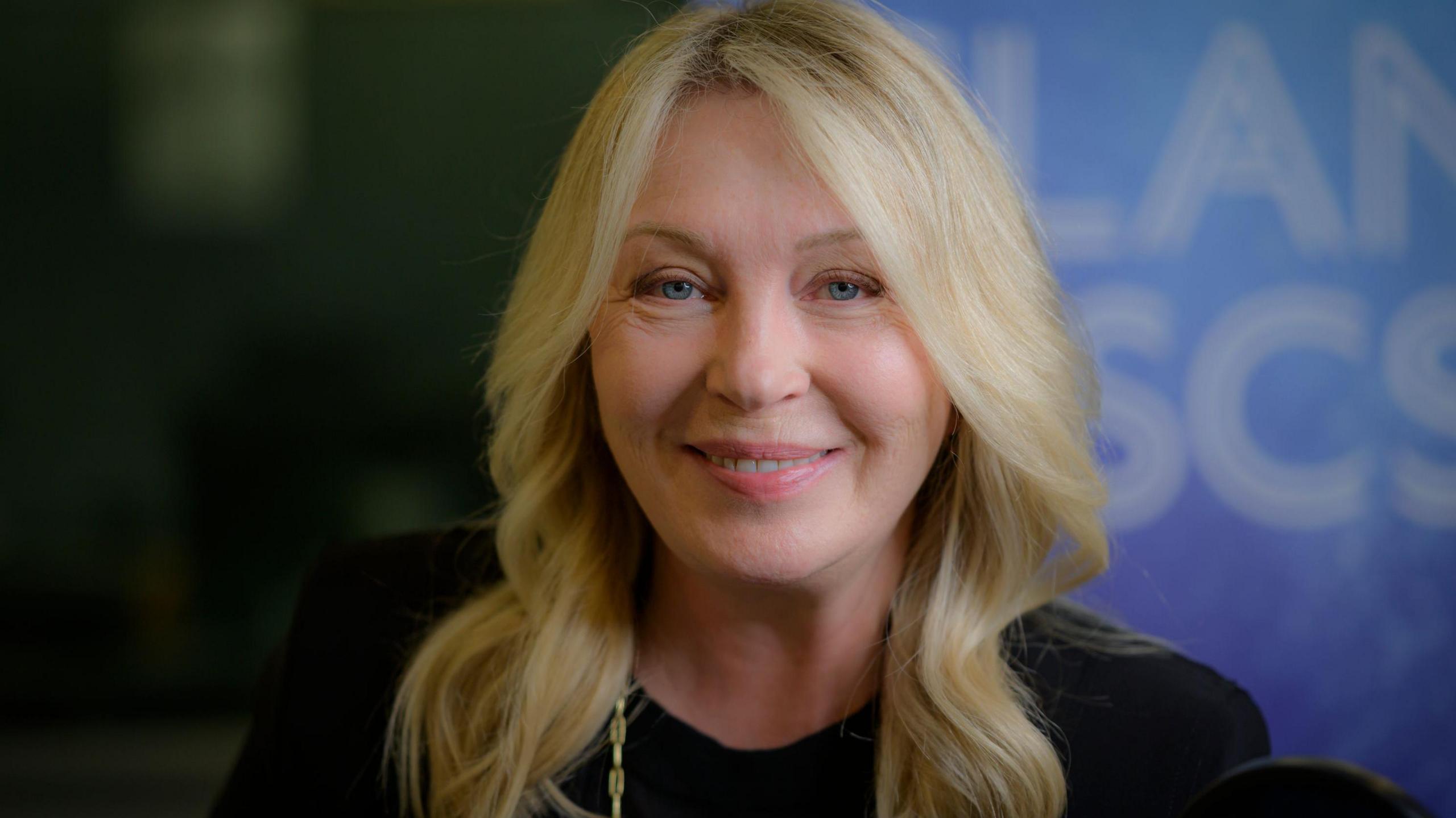
Radio and television presenter Kirsty Young purchased the island in 2020
- Published
Scottish TV and radio presenter Kirsty Young has been granted permission to build a holiday lodge on an uninhabited island in Loch Lomond known as "wallaby island".
The island is officially called Inchconnachan but earned its nickname due to it being home to Scotland's only colony of wild wallabies.
The plans initially attracted controversy from wildlife charities and the public, with an online petition to "save the wallabies of Loch Lomond" gaining over 100,000 signatures in 2022.
A spokesperson for the Loch Lomond and the Trossachs National Park Authority said the planning permission "will have no implications for the wallabies on the island."
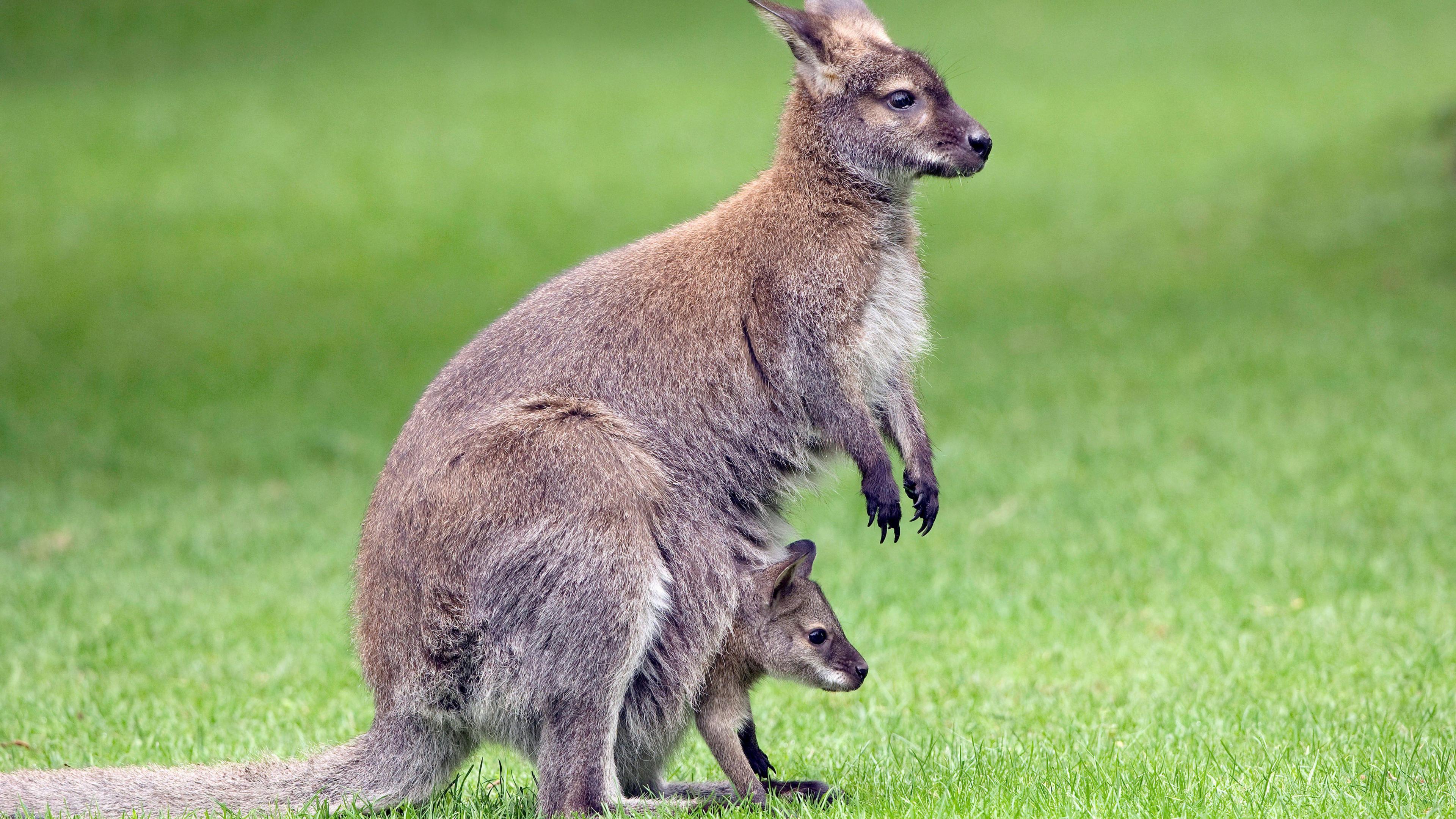
Wallabies have lived on Inchconnachan island for about 80 years
Young, who was born in East Kilbride and grew up in Stirling, began her career at BBC Radio Scotland before moving into television, later presenting programmes such as Crimewatch.
She was the main presenter of BBC Radio 4's Desert Island Discs from 2006 to 2018 before stepping down for health reasons.
The 56-year-old lodged the planning application in 2021 with her husband Nick Jones, who is the founder of private members' club chain Soho House.
The application includes plans to build a short-stay holiday rental with a new boathouse and a jetty on the 103-acre island.
The ruins of a 1920s colonial-style timber bungalow will also be demolished as part of the development and a natural wet woodland created on the land.
Loch Lomond and the Trossachs National Park Authority, which granted permission, said the proposal would result in "a small loss of habitat" but it would also have biodiversity benefits through "naturalisation of the former site".
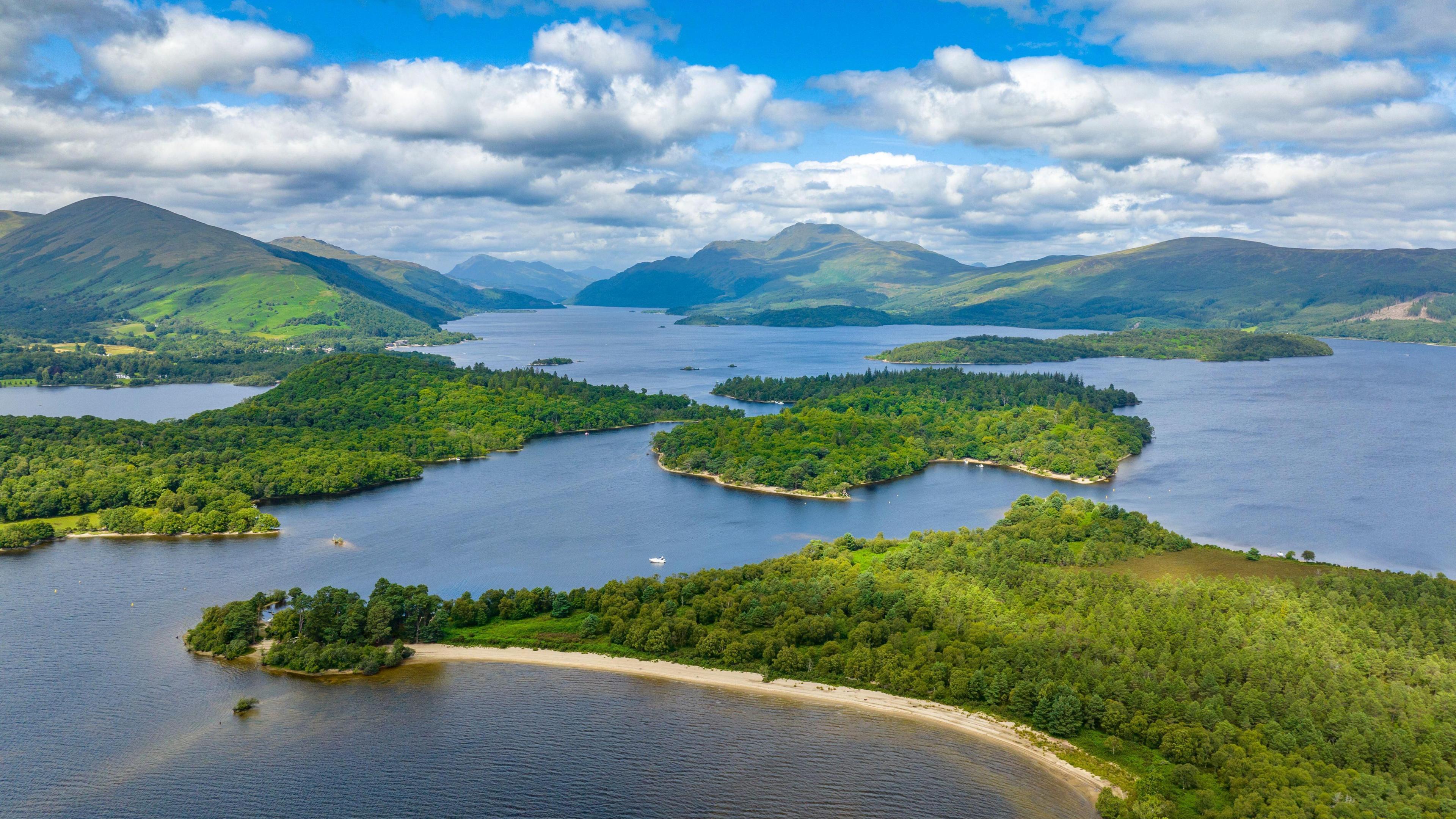
The Loch Lomond island is an area of special scientific interest.
Inchconnachan has been inhabited by wallabies for about 80 years.
They are thought to have been introduced to the island shortly after World War Two by Fiona Bryde Gore, Lady Arran Colquhoun.
Lady Arran is said to have transported them from her home in Hertfordshire where she also kept pot-bellied pigs, llamas and alpacas.
The wallabies, which are native to Australia, have survived on the island by eating oak, holly and birch trees.
About 60 wallabies are thought to roam the island, which is also home to the capercaillie, one of Scotland's most endangered birds.
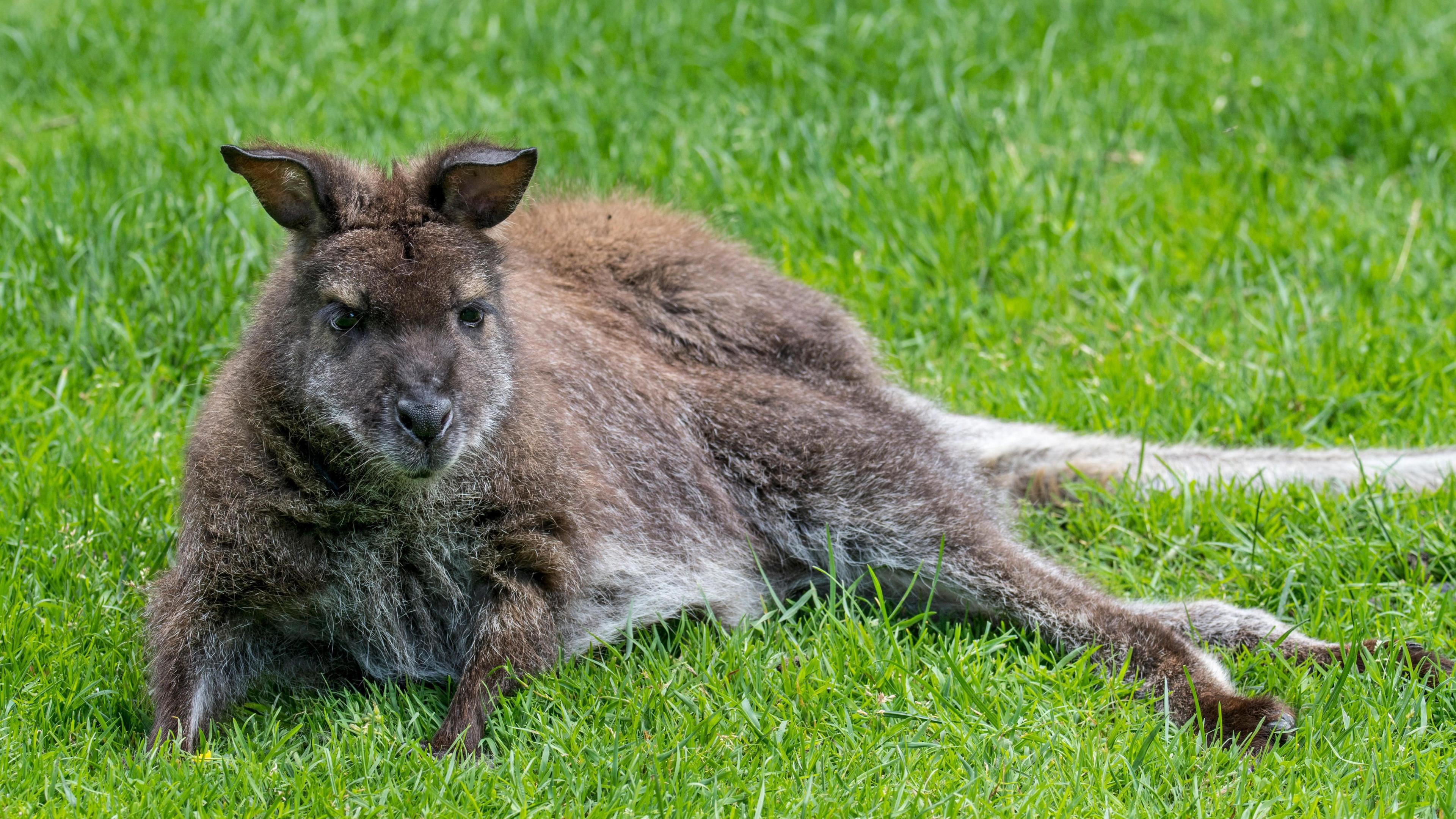
In 2022, concern was raised about the future of the Loch Lomond wallabies
The decision notice for the plans states that the proposed development includes "the removal of invasive/exotic species".
However, a spokesperson for the Loch Lomond and the Trossachs National Park Authority has said that this does not refer to the wallabies.
They said that this point relates to plant species such as Rhododendron ponticum (a serious invasive weed) and non-native trees, in order to promote the expansion of Atlantic oak woodland on the island.
Several conditions were also applied to the planning permission.
The lodge may only be used as a short-term let and guests are not permitted to stay more than 90 days in one calendar year.
Other conditions include the restoration of wetlands; promotion of native plant species and woodland diversity; and a full time warden being situated on the island.
Protection plans for otters and breeding birds are also required to be submitted and approved by the planning authority.
Claire Chapman, who chairs the planning and access committee, said the committee had given "careful consideration" to the impact of the development on the island's scenery and habitat.
She said: "It was concluded that the development would not have an adverse effect on the integrity of the protected sites."
- Published12 February 2022
